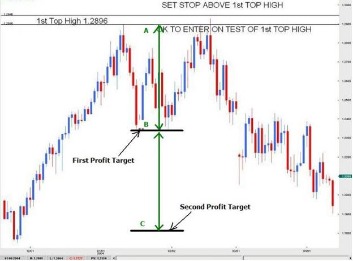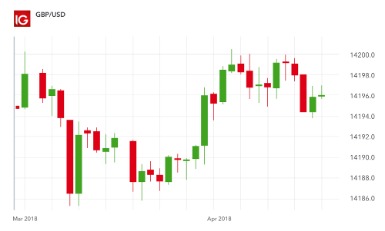Content
Once you`ve learned what is a CFD trading, you may be wondering how to trade properly. To successfully trade CFDs, the main condition is the use of leverage to increase equity, and you also need a margin. Opening a trading account provides access to oil products, indices, precious metals, and multiple currency pairs. Having gained profit from a trade, it can be immediately beneficially used by opening new orders, which allow the trader to increase his capital. Besides, for a participant in exchange trading, there is a possibility of distribution of all investments into different markets. In conclusion, choosing between CFDs and spread betting requires careful consideration of individual trading needs and preferences.
- Even though there are similar principles that are extremely obvious, the intricate distinction between CFDs and spread betting is not that easy to notice, especially for those new to trading and financial markets.
- On the other hand, CFD trading is also available overseas, and CFD contracts aren’t subject to expiration.
- Choosing which instrument to trade can be a challenge, but in our following CFD vs spread betting guide, we aim to help you decide which instrument you should trade.
- Consequently, this increases transparency in the CFD market and increases the value of fast trade execution speeds.
- No wonder they should be considered as one of the best spread betting brokers.
In spite of the similarities there are many differences between the two also. Spread betting, unlike traditional investing, is actually a form of betting. Unlike fixed-odds betting, it does not require a specific event to happen. ThinkMarkets consistently try to improve their trading environments with various advanced products.
It is important to remember that there can be nuanced differences between spread betting and CFD trading even within those broad strokes. CFD trades on margin which gives you greater leverage than traditional trading methods. The margin requirement is lower, which means that your trades can earn higher returns. You can open an account with as little $1,000 and have no capital requirements. Spread betting allows you to bet on whether a market will expand or fall between the time you accept your bet.
Forex Brokers We Recommend in Your Region
Come and find out why we were twice awarded the Best Broker for Execution in 2021. New live cTrader accounts also benefit from a one time 25% off purchases of algo and indicators from the ClickAlgo marketplace – ClickAlgo is the #1 provider of automated software solutions for the cTrader platform. During the 2000s and explosion of online trading, CFDs became the dejure product for online traders. Check out a previous blog article, where I wrote a more in depth discussion of how CFD markets work for more detailed information.

75.26% of retail investor accounts lose money when trading CFDs with this provider. CFDs vs spread betting are a more appropriate trading tool for professional investors and hedge funds. They offer anonymity for large positions and still provide access directly (with DMA brokers) onto the order book for better prices and larger orders. The point of spread betting vs CFDs is that you place your trades as bets and as such you do not have to pay capital gains tax on your profits.
Pros and Cons of CFD Trading and Spread Betting
Spread betting is only available in the UK and Ireland, so if you are planning on opening trades within another region, you may want to consider forex CFDs. The principal distinction between spread betting and CFD trading is the way they are taxed. Even though earnings from CFD trading are bound up with taxation, spread betting is a tax-free product immune from capital gains tax (CGT). The spread betting and CFD markets are financial derivatives that can speculate on the future price of an asset without actually owning it.
Yet to this day, when I ask them about the difference, they don't have a coherent answer. When I've probed them a bit more on the subject, it's clear everyone is really clueless. That’s pretty scary stuff when you consider some of them, including myself, trade pretty large position sizes. Lack of a coherent answers around CFDs vs Spread Betting pushed me to try and discover the answers myself. This article discusses the best tips and strategies for currency spread betting, along with the differences between spread betting vs CFDs. It is important to find a suitable trading method for you in order to trade forex successfully.
On the other hand, spread betting activities are normally tax-free in the U.K. Moreover, spot Forex trading, CFDs, and spread bets do not incur any stamp duty. Contracts for Difference (CFDs) represent a financial contract between a trader and their broker to exchange the difference between the opening price and the closing price of an asset. The other reason to trade using spot Forex, and not the other products, is one of scale. Big volume traders, we’re talking hedge funds here and not private traders, like to transact in the underlying market. That way they know the price they got was ‘on market’ and not impacted by the size of trade relative to the provider of the derivative product.
Forex Brokers Offering Spread Betting
Plus, they provide you with an opportunity to polish your trading skills without risking any money. You can even learn how to apply strategies and see if they’re effective. If you predict that the price of an asset will go down, just open a CFD to go down. Libertex compensates for this by charging small commissions as low as 0.008%, below the average for forex trading in the UK. But, of course, there is nothing better than knowing how much your trade will cost you upfront since the commissions are fixed for each asset. Everyone’s circumstances are different so what might work for you won’t for someone else.
Dividends are credited or debited to your account as they are paid out by the underlying companies, depending on whether you are long or short of the index. Corporate actions are generally applicable to both with the exception of dividends. The value of shares, ETFs and ETCs bought through a share dealing account, a stocks and shares ISA or a SIPP can fall as well as rise, which could mean getting back less than you originally put in.
You must be able to understand the complexities of trading and accept a lot of risk. You might want to reconsider trading if you aren’t comfortable with volatility or price fluctuations. Marketing for CFDs and spread betting is not intended for US https://g-markets.net/helpful-articles/restored-falling-wedge-pattern-sees-bitcoin-rising/ citizens as prohibited under US regulation. A major factor that could influence your choice of product are the taxes applied to each financial instrument. Consequently, traders have to turn to spot Forex trading if they want to exchange currencies.
Ownership of Underlying Asset:
It is also worth noting that all income in the USA is taxable (including gambling winnings). When CFD trading, you may find that the fees are not collated and is, therefore, harder to understand how the costs are calculated. For example, there may be swap fees, commission fees, variable spread fees, opening fees and closing fees.
- When it comes to spreading betting brokers, you need to find the best broker to make sure your wage is safe.
- CFD trading and spread betting may appear nearly identical on the surface but have legal and technical differences that traders should understand.
- Profit and loss is calculated as the difference between the opening and closing price of the bet multiplied by whatever they initially decided to bet per unit of the underlying.
- But since the market is unpredictable, there are situations when the expected movement does not occur and quotes continue to diverge.
Popular in the United Kingdom, contracts for difference (CFDs) and spread betting are leveraged products fundamental to the equity, forex, and index markets. CFDs trades made in derivative instruments are cash-settled and there is no exchange of physical goods. Spread betting involves speculation on the price movement of securities without taking any position in the security. Spread betting forex is one of the most common methods for forex trading, along with the use of contracts for difference (CFDs), which are both financial derivatives. The foreign exchange market is the largest and most liquid in the world, meaning that currency trading is popular with both beginner and professional traders.
Advantages Of CFDs vs Spread Betting
For more volatile assets, investors can expect greater margin rates, and for less risky assets, less margin. Similarly, a spread is defined as the difference between the buy price and the sell price quoted by the spread betting company. The underlying movement of the asset is measured in basis points with the option to purchase long or short positions. No wonder they should be considered as one of the best spread betting brokers. This broker is a great choice if you want to start spread betting, as they allow you to open a practice account to familiarize yourself with betting before actually jumping into the market. FXCM also allows you to place smaller bets which is always a good thing for novices.
In addition to currency pairs, Pepperstone provides many types of trading instruments, including CFDs for indices and shares, commodities, and cryptocurrencies. The answer to the question does depend quite a bit on what tax situation works best for the trader. Leaving tax implications to the side, the two products share many similarities. For me personally, with the benefit of now having worked for a CFD broker, I would choose CFDs over spread betting any day. CFDs were born out of financial markets and if you use an ECN or DMA style broker, liquidity is being directly sourced from institutional participants. Spread betting isn’t really utilised by institutions, so if you are trading through a spread better, there really is a third party involved in showing the prices you see on your platform.

According to classical economic theory, a contract for difference is a two-way contract in which the seller must pay the buyer the price difference between the opening and closing price of the order. And we are talking only about money, that is, without the right to demand delivery of the traded asset.For a person who is far from trading, this wording means nothing. For example, you think that the oil market will grow in the long term. In this case, you open a CFD contract and pay the seller the actual value of the asset at the time of opening the order.Then you wait until the time specified in the contract is over. If your assumptions are correct and the price of the asset actually soars, the seller will pay you the difference.
Both approaches offer unique advantages and disadvantages that traders must weigh before making a decision. Ultimately, the decision between CFDs and spread betting will depend on the individual trader's preferences, risk tolerance, and trading goals. To make informed decisions, traders must navigate the complexities of each approach, understand their costs and charges, and carefully manage their positions to avoid significant losses.
